Contents
Guide
Pagebreaks of the print version
Finding Einsteins Brain

(Photo courtesy of Brown Brothers.)
Finding Einsteins Brain
Frederick E. Lepore, MD

RUTGERS UNIVERSITY PRESS
NEW BRUNSWICK, CAMDEN, AND NEWARK,
NEW JERSEY, AND LONDON
Library of Congress Cataloging-in-Publication Data
Names: Lepore, Frederick E., 1949 author.
Title: Finding Einsteins brain / by Frederick E. Lepore, MD.
Description: New Brunswick, New Jersey : Rutgers University Press, [2018] | Includes bibliographical references and index.
Identifiers: LCCN 2017047395 | ISBN 9780813580395 (cloth : alk. paper) | ISBN 9780813580418 (web pdf)
Subjects: LCSH: Einstein, Albert, 18791955. | Einstein, Albert, 18791955Knowledge. | Harvey, Thomas Stoltz. | Brain. | BrainDissection.
Classification: LCC QC16.E5 L378 2018 | DDC 612.8/2dc23 LC record available at https://lccn.loc.gov/2017047395
A British Cataloging-in-Publication record for this book is available from the British Library.
Copyright 2018 by Frederick E. Lepore
All rights reserved
No part of this book may be reproduced or utilized in any form or by any means, electronic or mechanical, or by any information storage and retrieval system, without written permission from the publisher. Please contact Rutgers University Press, 106 Somerset Street, New Brunswick, NJ 08901. The only exception to this prohibition is fair use as defined by U.S. copyright law.
 The paper used in this publication meets the requirements of the American National Standard for Information SciencesPermanence of Paper for Printed Library Materials, ANSI Z39.48-1992.
The paper used in this publication meets the requirements of the American National Standard for Information SciencesPermanence of Paper for Printed Library Materials, ANSI Z39.48-1992.
www.rutgersuniversitypress.org
Manufactured in the United States of America
To Dean Falk, who had an idea.
To Lynn Lepore, who listened with conspiratorial intelligence.
To Ardean Everett Lepore, who loved words (and had the Scrabble scores to prove it).
To Michael J. Lepore, MD, who taught me to be curious in between seeing patients.
Contents
It is usually found that only the little stuffy men [in scientific work] object to what is called popularization, by which they mean writing with a clarity understandable to one not familiar with the tricks and codes of the cult. We have not known a single great scientist who could not discourse freely and interestingly with a child.
STEINBECK , The Log from the Sea of Cortez
Simply put, this is a biography of the brain of an extraordinary scientist. We will learn whether 1,230 grams of inert cerebral tissue, studied for over six decades, has taught us anything about Albert Einstein as he lived and worked, the brains of other humans, or the nature of genius. To embark upon our study, we rediscovered Thomas Harveys photographs of Einsteins intact brain that were taken in the spring of 1955 and then languished for many years in the basement of a home in Titusville, New Jersey. Thereupon, we explored the intersection of twenty-first century neuroscience and Einsteins grand achievements, illuminated by his vivid accounts of his processes of scientific thinking better known as gedankenexperiments .
The eminently successful writer of legal fiction John Grisham advises would-be authors to avoid the gimmick of prologues (or in my case, a preface). Nevertheless, Ill take my chances with a few prefatory paragraphs (both pro and con) as to why the intrepid reader should plunge into the next eighty-seven thousandplus words.
Dead for over sixty years, Einstein still speaks to us about the majesty and the mystery of the Very Big and the Very Small. I will reassert that this is not a true biography of the man, but you will get a sense of him and his science (and this will be time well spent). As I wrote about him, it gradually dawned on me that Einstein was an immensely likeable guy who could discourse freely and interestingly with a child.
Much of todays consuming interest in the neuroscience of consciousness is to be found in the relationship of Einsteins brain to his mind writ large. My occupational biases as a clinical neurologist aside, I will try to fairly assess if we are any closer to resolving whether the mind and the brain are separate (dualism) or one and the same (materialism). Can we really conjecture a mind apart from a brain without becoming quite giddy, like Alice when she saw the grin that remained after the Cheshire Cat had vanished quite slowly?
Interwoven with the grand topics of theoretical physics and neuroscience is a frisson of academic politics. When presented with set after set of brain slices that Thomas Harvey, an academic outsider, had mounted on microscope slides, what did the best and the brightest neuroscientists do (or not do) with Einsteins brain for over fifty years? And why (at the time of this writing) is the brain lost again?
My particular perspective on Einsteins brain will be instructive, but it is not for everyone. For those who are going to have a problem with Finding Einsteins Brain , get in line.
Neuroscientists will find it way too clinical and antithetical to reductionist systems neuroscience.
Neurologists will complain that they dont treat patients with a diagnosis of geniusits not a disease.
Neuropsychologists will grumble about a neurologist (aka, a brain guy) writing about the mind.
Neurophilosophers will shake their heads over my imprecise languageDid he mean property or substance dualism?
Physicists will gape open-mouthed at the presumption of a guy who treats migraines writing about general relativity without resorting to math. (Actually, I included Einsteins field equation of gravitation in to placate them. I fear they will see through my ruse.)
Neuroanatomists will grouse, Cortical surface anatomy! How quaint! Korbinian Brodmann and 1909 are asking for their study back.
Neuroradiologists and cognitive neuroscientists will disallow any conclusions based on nonliving brain tissue and chant in unison, Wheres Einsteins functional magnetic resonance imaging? Sorry, that particular signature technology of neuroscience didnt arrive until thirty-six years after Einsteins death.
I wont belabor the cavils of psychiatrists, neurophysiologists, historians of science, phrenologists, iridologists (Einsteins ophthalmologist purloined his eyes at autopsy, so there are no irises to study), Thomas Harvey critics (How do we know that its really Einsteins brain?), neurogeneticists, et cetera. As I said, the line forms to the right.
I can only implore the reader to please heed the words of an old Arab proverb: The dogs bark, but the caravan moves onand to turn the page.
Dean Falks gyrus-by-gyrus and sulcus-by-sulcus analysis of Einsteins brain incontrovertibly established its singular anatomy. Anatomy aside, do Thomas Harveys cerebral postcards from 1955 have anything to tell the modern reader about the mind of a genius? I believe that brain anatomy, as studied at least from the time of Paul Broca (and his examination of the brain of the aphasic Leborgne in 1861), has illuminated (and not obscured) the workings of the mind (see ). Nearly a century later, the birth of Einsteins brain as an object of scientific study began sadly with his death on April 18, 1955. We shall see if Harveys brash and spontaneous brain dissection can speak informatively across the decades to modern neuroscience.



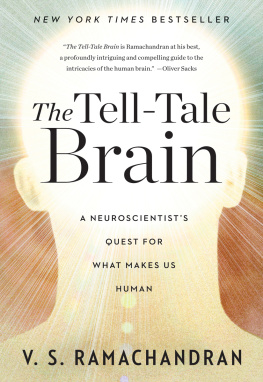
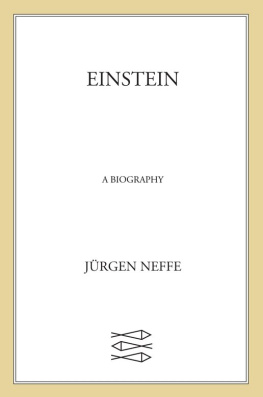
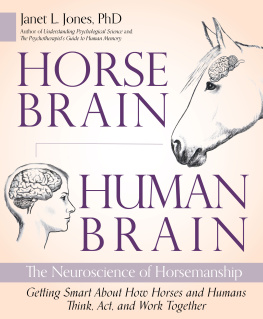
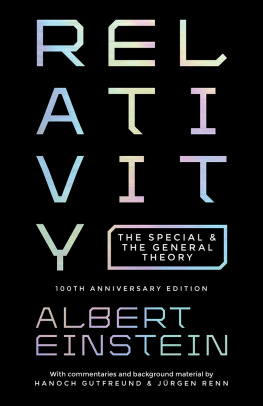
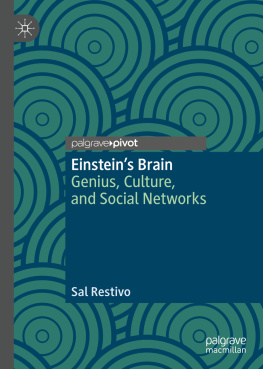
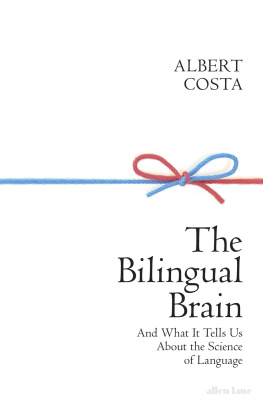
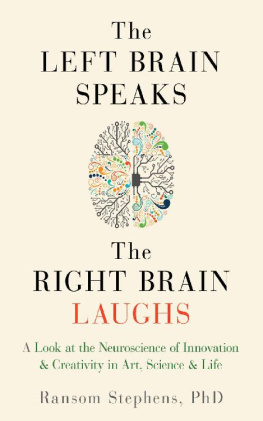
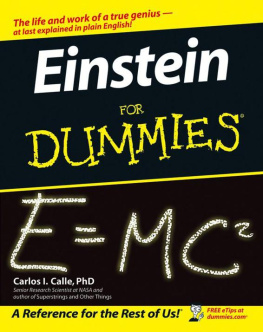

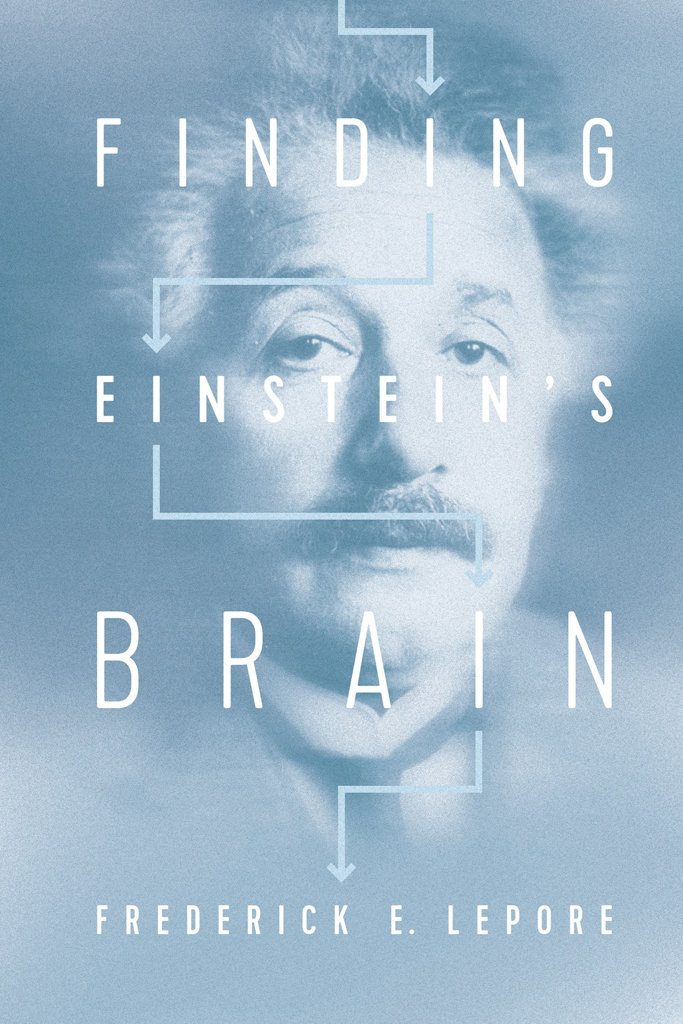


 The paper used in this publication meets the requirements of the American National Standard for Information SciencesPermanence of Paper for Printed Library Materials, ANSI Z39.48-1992.
The paper used in this publication meets the requirements of the American National Standard for Information SciencesPermanence of Paper for Printed Library Materials, ANSI Z39.48-1992.